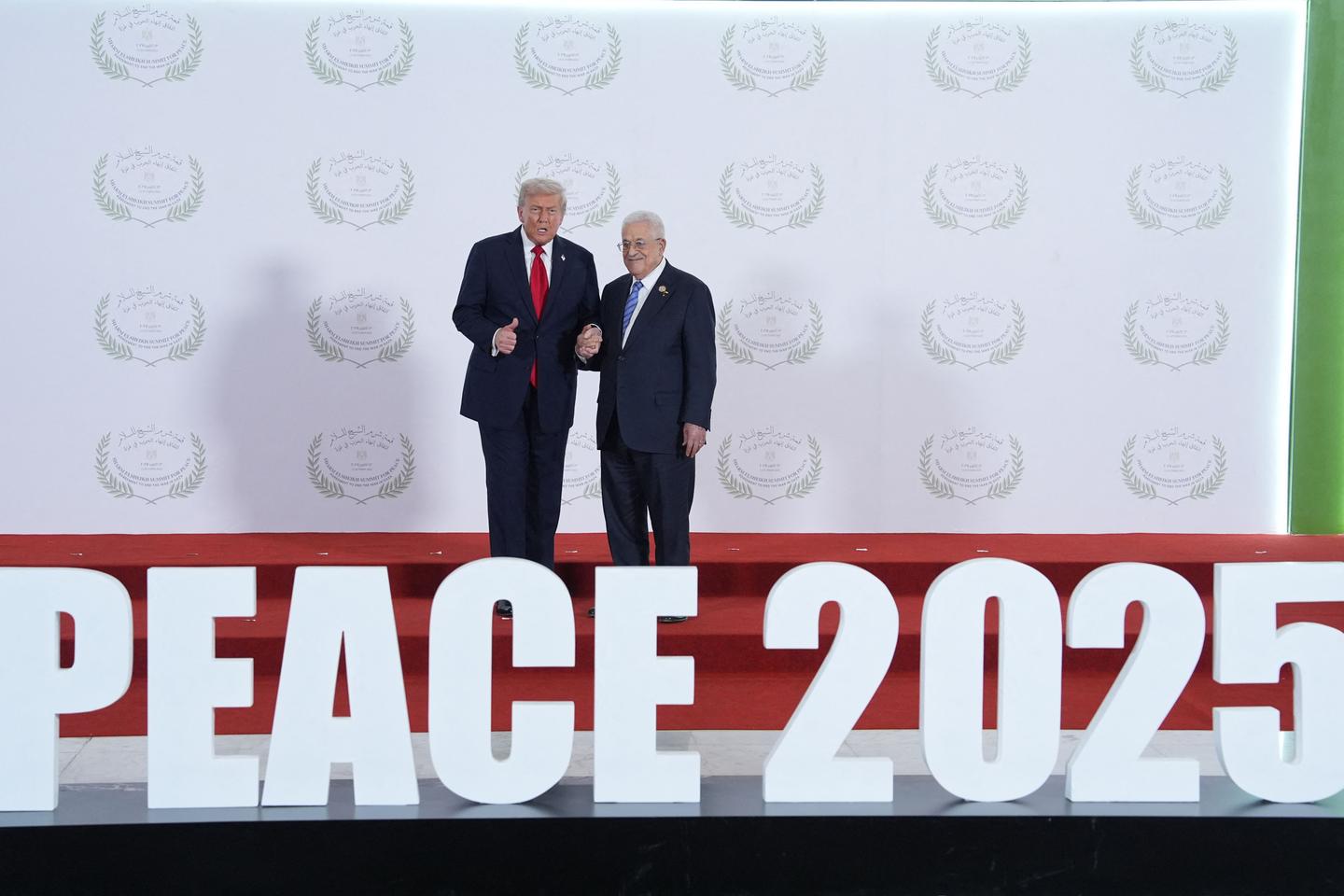


At the Sharm el-Sheikh summit on October 13, which was dedicated to his own glorification, Donald Trump came face-to-face with a Middle Eastern reality he had not encountered directly since visiting Bethlehem in May 2017 at the beginning of his first term: a Palestinian. That reality was embodied in a particularly striking way, as it was the president of a moribund Palestinian Authority, Mahmoud Abbas, soon to be 90 years old, who had been denied a visa by the United States one month earlier for the annual United Nations General Assembly in New York. A man from the past and who will remain in it, having become a symbol of his people's despair.
The few words exchanged by the pair during a photo op meant to capture Trump's triumph – after securing the release of Israeli hostages held in Gaza and Palestinian prisoners and bringing an end to the bombings in the enclave – will hardly make up for lost time. Nor will they restore balance to the US's overwhelmingly pro-Israel diplomacy, a long-standing bipartisan tendency only amplified by Trump. Family ties, real estate obsessions and geopolitical interests have become entangled there in open disregard for norms, as shown by the surreal speech Trump delivered on October 13 before the Knesset, Israel's parliament.
This closeness leaves little room for the Palestinians. That surely explains why, not so long ago, Trump could so casually imagine a Gaza emptied of its population – a goal of Israel's far-right supremacists. He justified what would have been a project of ethnic cleansing by imagining one of those vast, flashy real estate projects that Gulf city-states have made their specialty, modeled on a sanitized, authoritarian version of Singapore.
Paradox
The plan to end the war in Gaza was drawn up without consulting a single Palestinian official, just as Trump had done in January 2020 when he unveiled an earlier "peace plan" that was quickly abandoned. The latest proposal, which even borrows from those Gulf models, copies some of their features but ultimately preserves the Palestinians. Not as a people with political rights, foremost among them the right to self-determination, but as reduced figures, driven only by the pursuit of a better standard of living. Yet the past decades have repeatedly shown, and still show, that the latter cannot come without first recognizing the former.
You have 52.15% of this article left to read. The rest is for subscribers only.
